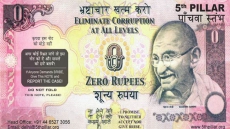Nearly all of the Earth's life-giving carbon could have come from a collision about 4.4 billion years ago between the Earth and an embryonic planet similar to Mercury, say scientists including an Indian-origin researcher.
"The challenge is to explain the origin of the volatile elements like carbon that remain outside the core in the mantle portion of our planet," petrologist Rajdeep Dasgupta from Rice University said.
Dasgupta's lab specialises in recreating the high-pressure and high-temperature conditions that exist deep inside the Earth and other rocky planets.
His team squeezes rocks in hydraulic presses that can simulate conditions about 250 miles below the Earth's surface or at the core-mantle boundary of smaller planets like Mercury.
"Even before this paper, we had published several studies that showed that even if carbon did not vaporize into space when the planet was largely molten, it would end up in the metallic core of our planet, because the iron-rich alloys there have a strong affinity for carbon," Dasgupta explained.
Dasgupta co-authored the study with Rice post-doctoral researcher Yuan Li and other colleagues.
"One popular idea has been that volatile elements like carbon, sulfur, nitrogen and hydrogen were added after Earth's core finished forming," said Li, who is now staff scientist at Guangzhou Institute of Geochemistry, Chinese Academy of Sciences.
"Any of those elements that fell to Earth in meteorites and comets more than about 100 million years after the solar system formed could have avoided the intense heat of the magma ocean that covered Earth up to that point," Li pointed out.
The Earth's core, which is mostly iron, makes up about one-third of the planet's mass.
The mantle, atmosphere and crust constantly exchange elements, including the volatile elements needed for life.
The experiments revealed that carbon could be excluded from the core -- and relegated to the silicate mantle -- if the iron alloys in the core were rich in either silicon or sulfur.
"The key data revealed how the partitioning of carbon between the metallic and silicate portions of terrestrial planets varies as a function of the variables like temperature, pressure and sulfur or silicon content," Li said.
"One scenario that explains the carbon-to-sulfur ratio and carbon abundance is that an embryonic planet like Mercury, which had already formed a silicon-rich core, collided with and was absorbed by Earth," Dasgupta added.
Because it's a massive body, the dynamics could work in a way that the core of that planet would go directly to the core of our planet, and the carbon-rich mantle would mix with Earth's mantle, the authors noted in the paper published in the journal Nature Geoscience.





